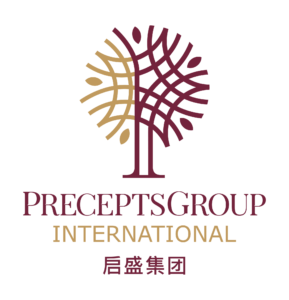It’s important for individuals to consult with experienced estate planning professionals before deciding whether to have a Will, Trust, or both. Each person’s circumstances and goals are unique, and a personalized approach is crucial to ensure the most effective estate planning strategy.
At Precepts, we have a team of experienced Estate & Succession Practitioners who can provide expert guidance and support in navigating the complexities of estate planning. Whether you require assistance with drafting a Will, establishing a Trust, or exploring other estate planning options, our team is dedicated to helping you make informed decisions that align with your goals and protect your assets for future generations.
What is a Will?
A Will is a legal document that allows individuals to articulate their instructions and wishes regarding the distribution of the assets after they have passed on.
Writing a Will allows an individual to plan for life after they have passed on – they can decide on how they want their assets to be distributed.
Additionally, a Will can be used to designate a legal guardian for any minor children.
Does everyone need a Will?
A Will is the last document that will represent your wishes and instructions. When your Will is done properly, it will provide you with control, and it will provide your loved ones with clarity.
The main advantages are:
1. Control of Distribution
You can decide how your assets will be given. Whether the distribution will be in a lump sum, periodic, conditional or delayed till a stipulated age.
2. Persons to Benefit
You can choose who benefits after you pass on. -> Beneficiaries Also, the alternate scenario should anyone of them predeceases.
3. Persons to Act on Your Behalf
You can appoint your trusted relative or friend to be your Executor or Trustee. They will be responsible for your financial affairs after you pass on. If need be, there is the option of Precepts Trustee, a licensed trust company as your Corporate Executor/Trustee, taking the burden away from an individual.
If you have children below the age of 21, you can appoint a legal guardian to take care of their daily needs, ensuring they are always protected and cared for, even when you are no longer around.
You can appoint your trusted relative or friend to be your Executor or Trustee. They will be responsible for your financial affairs after you pass on. If need be, there is the option of Precepts Trustee, a licensed trust company as your Corporate Executor/Trustee, taking the burden away from an individual.
If you have children below the age of 21, you can appoint a legal guardian to take care of their daily needs, ensuring they are always protected and cared for, even when you are no longer around.

What is a Trust?
A Trust is a legal entity established through a formal arrangement between a settlor and a trustee.
A Trust offers additional benefits beyond asset distribution. It can be especially valuable when there are young or vulnerable beneficiaries involved. A Trust can help protect and manage assets for the benefit of these beneficiaries.
It allows individuals to pass wealth from one generation to another while safeguarding the assets intended for specific beneficiaries. The flexibility and control offered by Trusts make many individuals choose Trusts as a key puzzle to their estate plan.
Do I Need a Will or a Trust?
A Will is a legally binding document that allows individuals, referred to as testators, to articulate their instructions and wishes regarding the distribution of their assets after they have passed away. It goes into effect only upon the testator’s death. A Will typically covers properties that are solely in the testator’s name at the time of their passing.
On the other hand, a Trust is a legal arrangement established through a formal arrangement between a settlor and a trustee. The settlor transfers assets into the Trust, and the trustee manages these assets for the benefit of the beneficiaries. Unlike a Will, a Trust takes effect immediately after its creation.
While both serve important purposes in distributing assets after a person’s passing, they differ in various aspects. Understanding the distinctions between Wills and Trusts is crucial in determining the most suitable option for one’s estate planning needs.
Difference Between a Will and a Trust
While both Wills and Trusts play integral roles in estate planning, they serve different purposes. A Will primarily allow individuals to plan for the distribution of their assets after they have passed away. It enables testators to determine how they want their assets to be distributed among their beneficiaries. Additionally, a Will can be used to designate a guardian for any minor children.
Whereas a Trust offers additional benefits beyond asset distribution. It can be especially valuable when there are young or vulnerable beneficiaries involved. A Trust can help protect and manage assets for the benefit of these beneficiaries. It allows individuals to pass wealth from one generation to another while safeguarding the assets intended for specific beneficiaries. The flexibility and control offered by Trusts make them a preferred option for many individuals.
Summary
An individual can have either a Will or Trust or even both. It depends on what is best suited for the individual. For example, if an individual has young children, a Will can help to determine who is the guardian to care for the children.
It is important to understand the benefits of both Estate Planning tools before proceeding to have one.
Each person’s circumstances and goals are unique, and a personalised approach is crucial to ensure the most effective estate planning strategy.
At Precepts, we have a team of experienced Estate & Succession Practitioners who can provide expert guidance and support in navigating the complexities of estate planning.
Whether you require assistance with drafting a Will, establishing a Trust, or exploring other estate planning options, our team is dedicated to helping you make informed decisions that align with your goals and protect your assets for future generations.
Leave an enquiry in the contact form below and we will get in touch with you.














